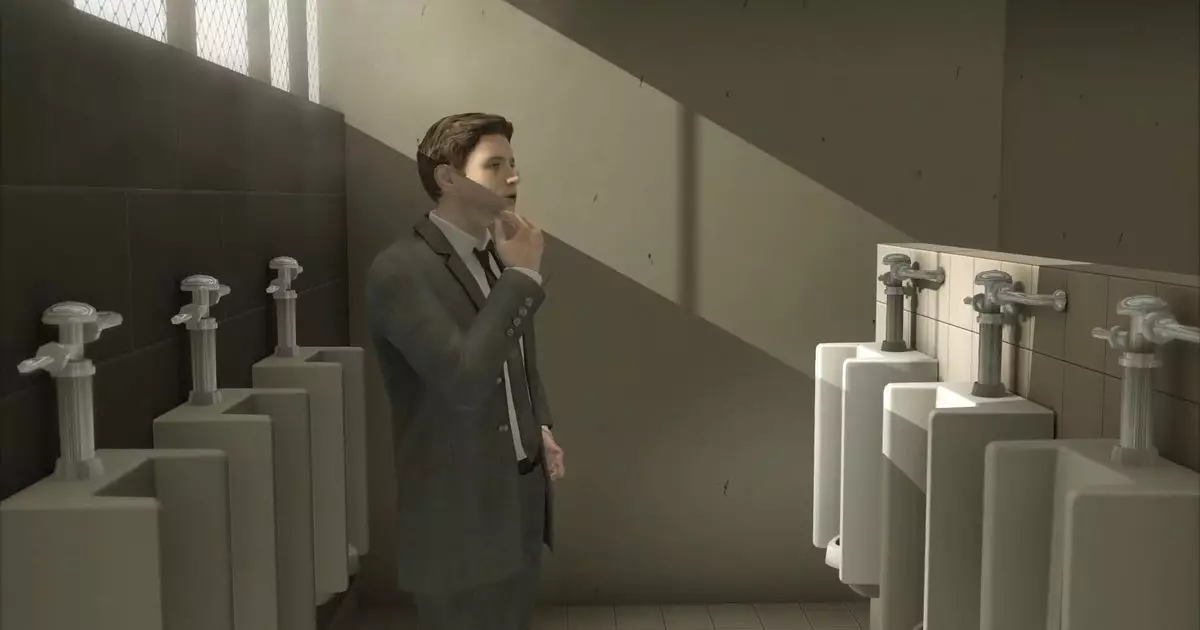In an age where entertainment is constantly evolving, the medium of video games stands out for its capacity to blend storytelling with interactive experiences. Among the labyrinth of content creators on platforms like YouTube, a delightful subset has emerged: individuals who hone in on minute, often mundane facets of blockbuster titles and dissect them with an almost poetic fervor. This phenomenon is particularly notable among those who delve into seemingly trivial elements, transforming them into captivating narratives worth exploring. My personal enthusiasm for these creators stems not from their exhaustive analyses of grand themes or mechanics, but rather from their ability to illuminate the bizarre details that make these games memorable.
Much like those who engage in deep contemplation of niche aspects in films or literature, video game enthusiasts who dissect details such as “pee mechanics” demonstrate a particular kind of art. For instance, the YouTuber Allie Meowy recently directed her creative lens on *Heavy Rain*, a game renowned for its cinematic narrative but also mocked for its melodrama. In her nearly hour-long analysis, Meowy not only looks at the frequency and circumstances of character interactions with the bathroom but elevates this exploration into an unexpected study of game design and storytelling. Her analysis invites viewers to reflect on the implications of these mechanics, transforming an ordinary topic into a discourse on narrative development and player engagement.
Meowy’s video exemplifies how hyperfixation can serve a dual purpose: it entertains while simultaneously probing deeper questions regarding agency in gaming. Is a character’s autonomy illustrated by their ability to perform mundane tasks, such as flushing a toilet? These investigations lend a certain depth to the characters, as well as the players’ relationship with the narrative.
The humor inherent in dissecting the “piss mechanics” of *Heavy Rain* cannot be understated. Meowy’s method, which intersperses moments of earnest critique with absurdity, mirrors how gamers themselves interact with Quantic Dream’s catalogue. Although these games aim for emotional gravitas, they often stumble into the territory of unintentional comedy. The juxtaposition of melodrama with trivial bodily functions reveals a dissonance that can be both entertaining and thought-provoking. As Meowy crafts her commentary, the viewer discovers how these incongruous elements serve as a microcosm of the entire gaming experience—where intricate narratives exist alongside the absurdities of digital life.
Through her lighthearted yet analytical approach, Allie Meowy compiles observations that transcend mere humor. For instance, she notes how men and women interact differently with toilets in the game, prompting a reflection on character design and gender representation. Such insights may appear trivial, yet they raise essential questions about how developers craft experiences that reflect or challenge societal norms. Is the need for men to flush the toilet an empowering critique of gender roles, or simply a design oversight?
The role of video essays and explorative content like Meowy’s extends beyond mere entertainment. These creators are providing an accessible means for a broader audience to engage with the underlying mechanics of game design and storytelling. For those unfamiliar with *Heavy Rain*, Meowy’s video serves as an engaging recap of the plot that is as informative as it is quirky. By focusing on something unconventional, she creates a bridge for viewers to appreciate both the comedic and serious elements embedded in the narrative arc.
This unique approach has consequences beyond the realm of gaming, influencing critique in fields such as literature and film. As viewers learn to appreciate the trivial alongside the profound, they cultivate a broader understanding of how themes are constructed and perceived across various media. Through this lens, *Heavy Rain*, with its accidents and oddities, becomes a case study in narrative construction.
In the contemporary landscape of digital content, creators like Allie Meowy are pushing the boundaries of traditional analysis and forming an evolving discourse around games as cultural texts. The intersection of humor and critical thought allows for an enriching dialogue that bridges the gap between casual gaming and in-depth critique.
Thus, as we witness the rise of these unique voices, it’s essential to recognize that the study of mundane aspects within video games serves a greater purpose: it encourages players and viewers alike to engage critically with the digital narratives they encounter. By examining the absurdities of *Heavy Rain* and beyond, we are invited to reflect on the art of gaming itself, sparking conversations that go beyond mere gameplay and into the heart of what it means to tell a story in this interactive medium. As we continue to navigate the digital landscape, it is these seemingly trivial explorations that illuminate the profound layers of meaning still waiting to be unearthed.


Leave a Reply